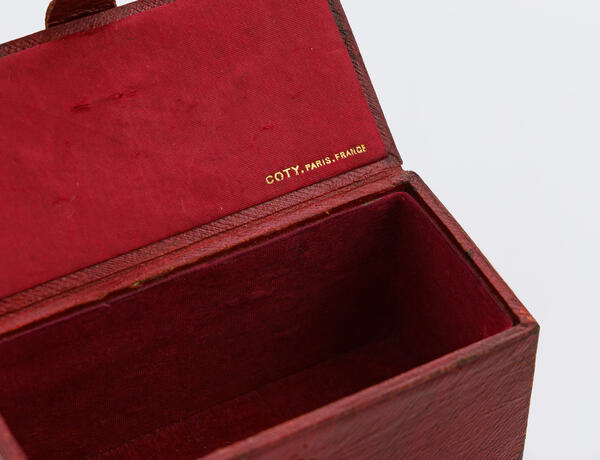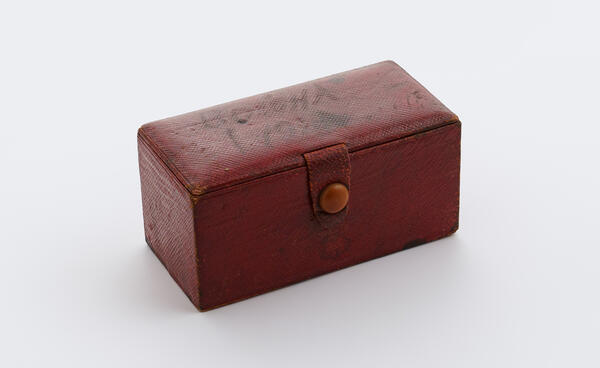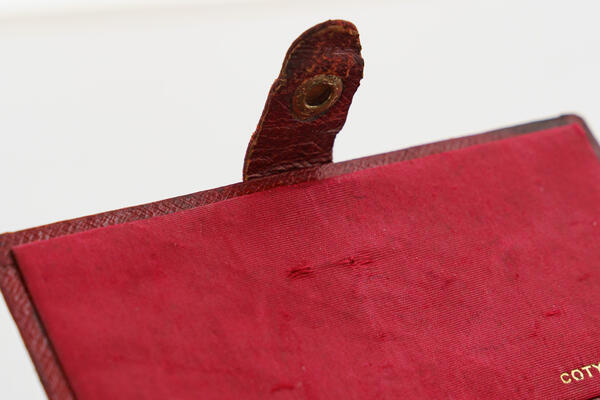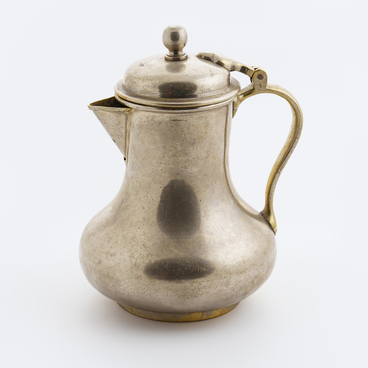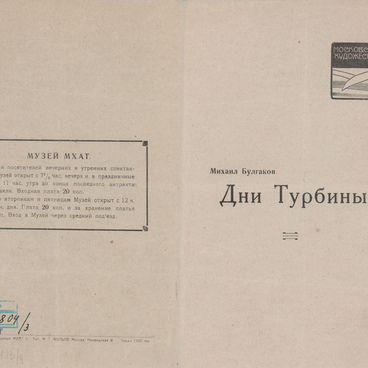A perfume box of the French company Coty is one of the few personal belongings of Bulgakov’s mother Varvara Mikhailovna preserved by the writer. Varvara Mikhailovna died of typhoid fever on February 1, 1922 in Kiev. Bulgakov at that time lived in Moscow and could not come to the funeral. Bulgakov’s second wife Lyubov Yevgenyevna Belozerskaya recalled that the box stood in the study on the writer’s desk in the apartment on Bolshaya Pirogovskaya — in the place where the showcase with this box and other personal belongings of Mikhail Afanasyevich are now displayed.
On the lid it is possible to distinguish the inscription “War” and the numbers “One, nine, one” and a bold blot hiding the last number. These words, according to Lyubov Yevgenyevna’s testimony, are written in Bulgakov’s hand. The inscription could be a reminder of the Civil War, which the writer describes in his first novel “The White Guard”. Bulgakov worked on this text in the first half of the 1920s, living in a communal apartment at 10 Bolshaya Sadovaya Street.
The characters in the novel are easily recognizable as Mikhail Bulgakov’s family and friends in Kiev. “The White Guard” gives a nostalgic description of quiet family evenings in Kiev, Bulgakov’s hometown. After the revolution, his brothers emigrated, and the writer, banned from traveling abroad, never had the chance to meet them again.
“Their mother’s funeral had been in May, the cherry and acacia blossom brushing against the narrow lancet windows of the church. His cope glittering and flashing in the golden sunlight, their parish priest Father Alexander had stumbled from grief and embarrassment while the deacon, his face and neck mauve, vested in beaten gold down to the tips of his squeaky boots, gloomily intoned the words of the funeral service for the mother who was leaving her children.”The novel begins with the scene of the funeral of the Turbins’ mother, and her image is present throughout the novel.

